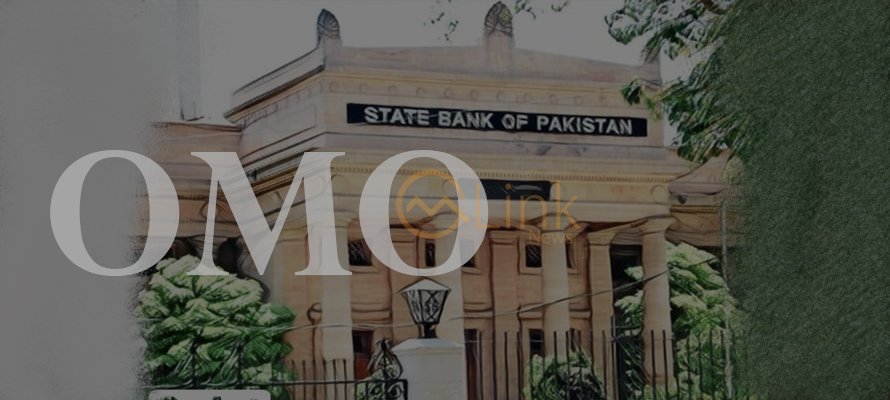August 08, 2020: Moody's Investors Service (“Moody's”) has today confirmed the Government of Pakistan's B3 local and foreign currency issuer and senior unsecured debt ratings with a stable outlook.
Concurrently, Moody's has also confirmed the B3 foreign currency senior unsecured ratings for The Third Pakistan International Sukuk Co Ltd. The associated payment obligations are, in Moody's view, direct obligations of the Government of Pakistan.
This concludes the review for downgrade initiated on 14 May 2020.
The review for downgrade reflected Moody's assessment that the country's participation in the G20 Debt Service Suspension Initiative (DSSI) raised the risk that private sector creditors would incur losses. In the last few weeks, Moody's has considered the evidence of implementation of DSSI for a range of rated sovereigns, and statements by G20 officials.
While Moody's continues to believe that the ongoing implementation of DSSI poses risks to private creditors, the decision to conclude the review and confirm the rating reflects Moody's assessment that, at this stage, for Pakistan, those risks are adequately reflected in the current B3 rating. It remains unclear what influence is being applied to Pakistan and to other participating sovereigns to treat private creditors in a comparable manner to official sector creditors. However, a number of elements suggest that the probability of broad-ranging private sector involvement has diminished. These include the apparent absence of progress in discussions about how private sector involvement ('PSI') would be effected in DSSI in general; indications by the G20 that PSI would require the support of the borrowing government; the government of Pakistan's continued assertion that PSI is not contemplated; and evidence of some debt payments being made to private sector creditors under a DSSI regime.
The risks that remain relate to the possibility that, in particular cases DSSI is implemented with private sector creditors also being drawn in to provide debt service relief and incurring losses in doing so. Should the probability of default and losses to private sector creditors increase as implementation of DSSI for Pakistan becomes clearer, Moody's would reflect any related changes in risks to private creditors in further rating announcements.
The stable outlook reflects Moody's view that the pressures Pakistan faces in the wake of the coronavirus shock and prospects for its credit metrics in general are likely to remain consistent with the current rating level. In particular, while Moody's sees downside risks to Pakistan's economy because of movement and activity restrictions related to the pandemic, which would in turn intensify the government's fiscal challenges, strong support from development partners including for external financing, coupled with effective macroeconomic policies started ahead of the crisis, contain external vulnerability and liquidity risks.
Pakistan's Ba3 local currency bond and deposit ceilings remain unchanged. The B2 foreign currency bond ceiling and the Caa1 foreign currency deposit ceiling are also unchanged. The short-term foreign currency bond and deposit ceilings remain unchanged at Not-Prime. These ceilings act as a cap on the ratings that can be assigned to the obligations of other entities domiciled in the country.
RATINGS RATIONALE
RATIONALE FOR CONFIRMING THE B3 RATING
Moody's initiated a review for downgrade for Pakistan's ratings following the country's participation in DSSI to reflect the potential for private sector losses given the call in the G20's 15 April term sheet for private creditors to participate in debt service relief on comparable terms to official creditors. The review for downgrade reflected the tension evident between Pakistan's stated intention not to seek relief from private sector debt service obligations, and the clearly-stated view of the key sponsors of the DSSI, specifically the IMF and World Bank, that private creditors should participate in the DSSI on comparable terms. Private sector losses incurred as part of the DSSI would likely constitute a default under Moody's definition.
There remains considerable uncertainty regarding the treatment of private sector creditors of the sovereigns which choose to participate in DSSI, including Pakistan. Recent statements by the Institute of International Finance (IIF) suggest that some DSSI participants have had informal discussions with private sector creditors regarding deferral of interest.
However, the risk of broad-ranging involvement of private sector creditors in many or most DSSI cases appears to have diminished. There has not been any material progress in clarifying where and how private sector creditors would be asked to provide debt service relief. While the most recent communiqué issued by the G20 Finance Ministers and Central Bank Governors on 18 July reiterated that sponsors “strongly encourage private creditors to participate in the DSSI on comparable terms” the clarifying language “when requested by eligible countries” seems to acknowledge the need for support from the borrower for that to happen[1]. Participating governments including Pakistan have continued to assert that they do not wish to engage with private sector creditors. And a number of DSSI-participating governments have continued to make interest and coupon payments to private creditors as they fall due.
The risks that prompted the initiation of the review for downgrade for Pakistan have not disappeared and there has been limited additional clarification since the initial DSSI terms were announced. However, the risks have become more specific to each DSSI implementation case and at this stage, Moody's assesses the probability that private sector creditors of Pakistan incur losses through DSSI to be captured in the B3 rating. Should the probability of losses to private sector creditors increase as implementation of DSSI for Pakistan becomes clearer, Moody's would reflect any related changes in risks to private creditors in further rating announcements.
RATIONALE FOR THE STABLE OUTLOOK
The coronavirus pandemic is weighing on economic activity in Pakistan, resulting in lower tax revenue, a wider fiscal deficit, and a higher debt burden for the government. While continued spread of the virus poses downside risks to the economy and government finances, financial and technical support from development partners mitigates external vulnerability and liquidity risks. The government's commitment to its current International Monetary Fund (IMF) Extended Fund Facility (EFF) continues to unlock a large financial envelope that Moody's expects will cover its external financing needs over the next 12-18 months, and provides an anchor for ongoing fiscal reforms. Effective macroeconomic policies lower interest payments, supporting debt affordability, and provide policy buffers.
Moody's expects Pakistan's economic growth to be positive in fiscal 2021 (ending June 2021) from a recession in fiscal 2020, but still low at around 1-2%. While Pakistan's economy is relatively closed with low reliance on exports, movement restrictions due to coronavirus will keep economic activity below the pre-outbreak levels for some time.
The slow economic recovery will in turn weigh on government revenue, keeping the fiscal deficit wide at around 8-8.5% of GDP in fiscal 2021 under Moody's projections, at similar levels compared to fiscal 2020, and leaving the government's debt burden high at around 90% of GDP by the end of fiscal 2021.
Risks to the economy and government finances are to the downside, particularly if more stringent measures are implemented to curb the spread of the virus domestically.
However, even in downside economic and fiscal scenarios, Moody's expects Pakistan to cover its external financing needs with continued significant financial support from its development partners, including the commitment to rollover most bilateral loans that come due, independent of how DSSI is implemented. Moody's also expects the government's ongoing engagement with development partners on fiscal reforms, such as through the IMF EFF and other programmes with the Asian Development Bank and World Bank, to contribute to a modest widening of the revenue base, once the crisis passes, improving debt affordability and containing fiscal risks over the next few years.
Meanwhile, external financing needs have declined relative to fiscal 2018-19 because of a narrower current account deficit, which occurred as a result of the macroeconomic adjustments over the past two years and continues to be supported by effective policies including currency flexibility. Moody's projects the current account deficit to be around 2% of GDP in fiscal 2021, after 1.1% in fiscal 2020, substantially narrower than the average of around 5.5% over fiscal 2018-19.
Stability in the balance of payments will, in turn, allow the State Bank of Pakistan, the central bank, to keep monetary policy accommodative as inflation declines. This keeps a lid on borrowing costs for the government domestically and lends further support to debt affordability.
ENVIRONMENTAL, SOCIAL AND GOVERNANCE CONSIDERATIONS
Environmental considerations are significant to Pakistan's credit profile because it is vulnerable to climate change risk. Pakistan is significantly exposed to extreme weather events, including tropical cyclones, drought, floods and extreme temperatures. In particular, the magnitude and dispersion of seasonal monsoon rainfall influence agricultural sector growth and rural household consumption. The agricultural sector directly accounts for around 20% of GDP and exports, and nearly 40% of total employment. As a result, both droughts and floods can create economic, fiscal and social costs for the sovereign.
Social considerations are material to Pakistan's credit profile. Access to quality healthcare, education and utilities such as electricity and water remains limited, especially in rural areas, although the government is addressing these issues as a key priority through its “Ehsaas” programme that is aimed at reducing poverty and inequality, strengthening social safety nets and promoting human capital development. Moody's regards the coronavirus outbreak as a social risk under its ESG framework, given the substantial implications for public health and safety. For Pakistan, the epidemic exposes the challenge to the government in enhancing healthcare and public services provision.
Governance considerations are significant to Pakistan's credit profile. International surveys of various indicators of governance, while showing some early signs of improvement, point to weak rule of law and control of corruption, as well as limited government effectiveness. These weaknesses are balanced against a lengthening track record of effective checks and balances and judicial independence for the level of development in the country.
Moody's Press Release
36193







